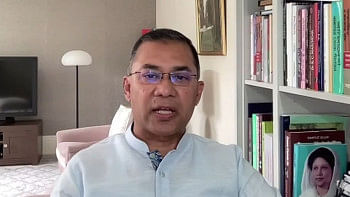Restrict network along Myanmar border
Bangladesh Telecommunication Regulatory Commission (BTRC) yesterday directed all mobile operators to restrict their networks in the Bangladesh-Myanmar border areas as well as block networks in and around Rohingya camps.
The directive came yesterday in a letter issued by the telecom regulator after an order from the Prime Minister's Office (PMO) to this effect.
Following the directive, mobile operators have weakened their networks in the border areas along with Myanmar, that include Cox's Bazar and Bandarban.
Soon afterwards, complaints from subscribers in the areas started to pour in about the poor network quality, said a senior telecom executive, seeking anonymity.
Around 120 base stations in the border areas have been restricted under the directive, causing network disruption in Cox's Bazar, the executive said.
Contacted, Md Jahirul Haque, acting chairman of BTRC, said, “The decision was challenging for us, as we know it might affect subscribers in the region.”
The move came following an intelligence report that said Myanmar is trying to create anarchy in the border areas using mobile communication applications.
Earlier, the government had asked mobile operators not to sell SIM cards to Rohingya refugees.
However, most of the refugees have Bangladeshi SIM cards. Some mobile operators' representatives have allegedly sold those inside the camps as well.
“We are complying with the directive and cannot help the network disruption it is causing to Bangladeshis in the area,” said Sahed Alam, executive vice-president of Robi.

 For all latest news, follow The Daily Star's Google News channel.
For all latest news, follow The Daily Star's Google News channel. 



Comments